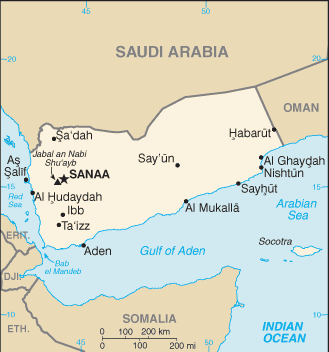One of the first measures taken by Saudi Arabia, when announcing its war against Yemen, was a full-scale naval blockade. For a nation that imports over 90% of its food, that was a devastating move, and one Saudi officials assured wouldn’t keep the food out of the country.
 A few weeks in, and that’s exactly what it’s doing. Several cargo ships full of food are now basically stuck off the coast, awaiting interminable inspection processes to get permission to deliver the food. Several companies who used to ship food to Yemen are now refusing to take any more jobs, since delivery is all but impossible.
A few weeks in, and that’s exactly what it’s doing. Several cargo ships full of food are now basically stuck off the coast, awaiting interminable inspection processes to get permission to deliver the food. Several companies who used to ship food to Yemen are now refusing to take any more jobs, since delivery is all but impossible.
The Lycavitos, one of the ships presently stranded, spent a solid week waiting for the Egyptian Navy to go inspect it. They finally did Tuesday, sifting through 47,250 tons of wheat, nominally to look for “Iranian weapons.” They didn’t find any.
Cleared by Egypt, the Lycavitos was supposedly all set to dock at al-Saleef, but was almost immediately accosted by another warship after getting cleared by Egypt, and was told it had to submit to another round of inspections. They’re told that’ll happen sometime next week.
The poorest country in the Middle East, Yemen didn’t have a lot of excess food lying around in the first place, and the shipping delays have meant shortages in most of the major cities. As the inspection process continues to delay if not outright prevent ships from delivering food, expect inconvenience and high prices to quickly turn into an outright humanitarian calamity.
Saudi officials defend the blockade as necessary for their military operation, and continue to cite the specter of Iranian weapons, even though not a single weapon has been found in the searches. The US Navy is involved in some of the vessel searches as well, meaning America is playing a direct role in prevent food from reaching the besieged populace.


